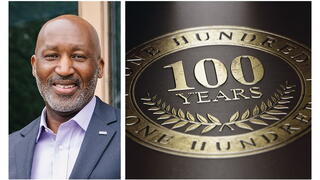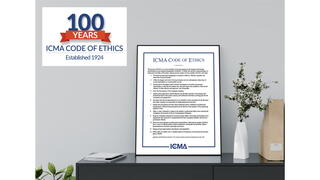
Celebrating 100 years of the ICMA Code of Ethics

Looking at the roles and responsibilities of local government professionals and elected officials

We must all take action to preserve our democratic institutions, public processes, and the council-manager form of government.

Member questions about political neutrality and vendor relationships

Celebrating this milestone and reflections on the year ahead

Strengthening the organization’s approach to receiving a gift and advice on creating effective gift guidelines

Tenet 3 offers guidance to merit trust and confidence placed in local government professionals.

The ethical obligation to be politically neutral in the era of the perpetual election cycle

Navigating ethical communication with the help of Tenet 9
